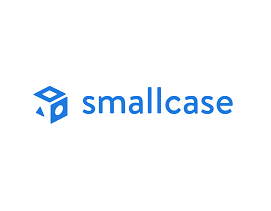In recent years, the number of companies offering Employee Stock Ownership Plans (ESOPs), particularly start-ups, has expanded dramatically. When it comes to acquiring and retaining long-term employees, employers are turning to employee stock ownership plans (ESOPs). ESOPs have become a substantial source of wealth creation for start-up employees, as seen by many initial public offers (IPOs), exits, and buybacks.
It can be difficult for a start-up to pay greater wages at the outset, and the company’s primary priority is to conserve and spend capital on operations.
Employee stock ownership plans (ESOPs) provide employees with a portion of the company’s equity in lieu of, or sometimes in addition to, higher pay and raises, benefiting both parties.
ESOPs appear to be a terrific method to own a piece of a firm while benefiting from possible benefits if the company goes public.
ESOPs adding value to employees
An ESOP is a contract established between a firm and you that allows you to acquire company shares at a predetermined time and price. When you exercise these stock options and sell the shares at a price greater than their market value, you have the ability to dramatically increase your wealth.
If you receive stock options as part of your annual compensation package, it can be a source of long-term wealth creation. It can even compensate for a lower-than-average pay if you join an early-stage company with a significant equity component.
The main advantage is that when the firm executes an ESOP repurchase or launches an IPO. As a result, ESOPs are an excellent tool for accumulating wealth.
Drawbacks
While there is the possibility of future monetary rewards, ESOPs are not without risk.
Additional tax burden
ESOPs have two tax consequences. The first is that ESOP gains are recognised as capital gains, and you must pay taxes on them in accordance with your tax bracket.
The higher tax burden is the result of the second implication of ESOP taxation—salary income. At the time of vesting, ESOPs are frequently distributed to you for less than fair market value. As a result, the difference is regarded as an incentive. If you convert the ESOPs into stocks after vesting and are unable to sell (no cash inflow), you will be subject to tax in the associated fiscal year. Of course, a proper ESOP policy would allow you to hold the ESOPs until the liquidity event, such as an IPO or exit so that the tax penalty arises only when value accrues in your hands.
Failure in repurchase or public listing
When you receive ESOPs from a startup, buybacks and public listings are rare occurrences. They are only an option. If the company does not perform successfully, your return on ESOPs becomes conditional. If you earn ESOPs in addition to a market-rate pay, there is no major negative impact. However, if it is in exchange for greater compensation, you may lose sight of the worth of the effort and time you have put in over the years.
ESOPs are affected by corporate performance
Typically, an ESOP buyback or IPO occurs when the company has significant growth prospects. When the value of the company falls, it will reflect on the stock options, and you may be unable to liquidate your shares profitably. You may forego monetary gains as well as a good wage if you choose ESOPs.
In conclusion
Without a doubt, employee stock ownership plans (ESOPs) are an excellent tool for businesses and startups to recruit and retain employees. However, as a present or prospective start-up employee, you require perks in addition to a competitive wage. This can occasionally make ESOPs a suitable fit, especially if you value equity and believe in the company’s long-term future.
Before requesting or accepting an ESOP in lieu of greater pay, it is a good idea to study the terms and conditions relating to vesting and exercising.
Along with that, think about where the company’s management envisions progress in a few years. While many start-ups have a cloudy perspective of progress, certain concepts are preferable to knowing nothing about growth potential.
Working for a start-up entails a unique combination of risks and obstacles. The experience can be extremely gratifying, and ESOPs are only one possible monetary part.




